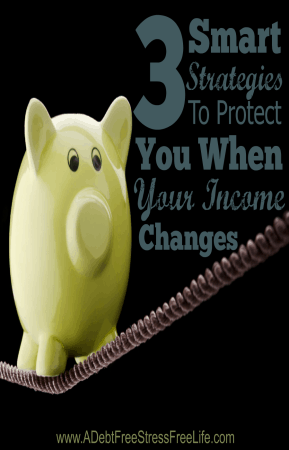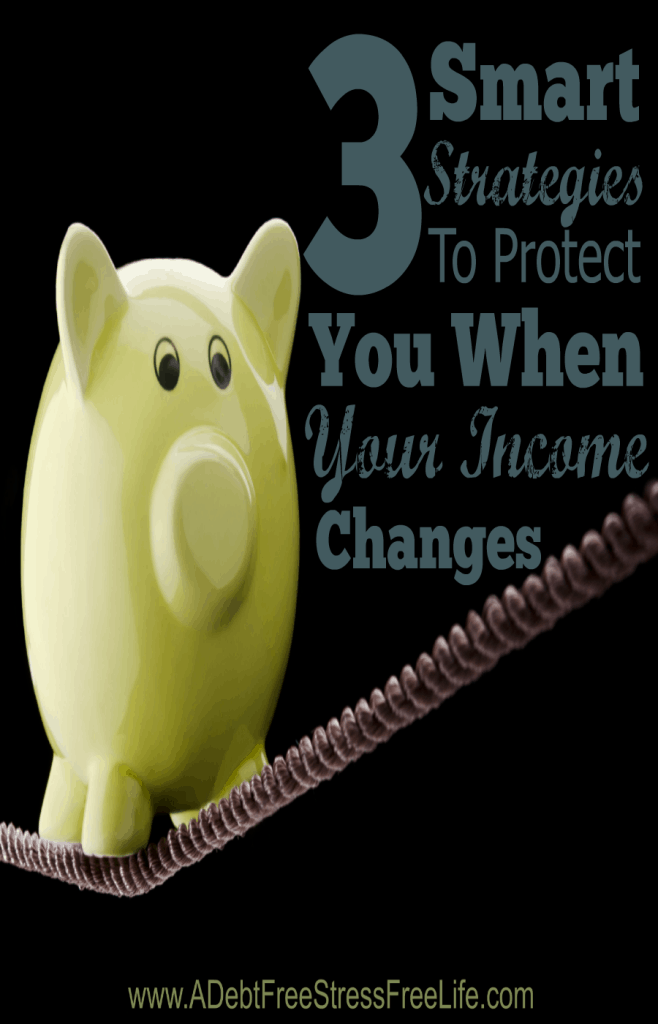A Mess Free Life may collect a share of sales or other compensation from the links on this page.
Despite the fact the recession hit over 6 years ago, many people continue to experience income changes.
We all know people who lost their jobs, never found another and finally took up entrepreneurship to try to provide for their families. Most have never experienced a rebound in their income and they continue to struggle day in and day out trying to make ends meet.
When I talk with people who have either been laid off from work or have seen the numbers in the business decline significantly, the conversation always turns to how they have or have not protected themselves for this event.
Want to make sure you’re protected? Here are my three best tips to ensure you’re protected when your income changes:
Tip #1: Get Your Emergency Fund Fully Funded
When disaster strikes either through a job loss, illness or other life crisis, a fully-funded emergency fund will protect you from either a short-term or longer-term situation.
In the old days, a 3 – 6 month fully-funded emergency account was enough to ensure you were protected until you could find a suitable replacement for your income.
We all know people who continue to look for work one and two years after losing their job. The 3 – 6 month fund was inadequate for them.
Today, I encourage people I work with to fund their emergency accounts with anywhere from 12 – 18 months and up to 24 months if they’re self-employed. I know this is a lot of money, but when you evaluate what’s been happening as people continue to look for work months and months after losing their job, it’s a realistic plan.
Of course this will take time, but if you’re working towards growing your emergency fund, consider funding it for two years.
Tip #2: Eliminate Debt
When I hear how someone lost their job and then lost their home, I know what’s coming next. They typically tell me how they had huge amounts of credit card debt and just couldn’t keep up with the payments each month.
Get rid of your debt; starting working diligently to eliminate it.
No pair of shoes, expensive trip, or fancy dinner is a good enough reason to rack up the credit cards and put your home and financial situation in jeopardy.
It’s crucial for your financial survival to eliminate credit card debt as quickly as possible and then vow not to use credit again — unless of course, you’re someone who pays their balance in full each month. You have to be super disciplined to use credit cards in this way, and if you are an over-shopper, I do not recommend it. Most people are just not that disciplined despite their best intentions.
The vast majority of people would have been in much better shape, and possibly would still have their home, if they didn’t have the additional burden of paying creditors. Don’t find yourself in that position; get rid of debt starting today.
Tip #3: Protect Yourself
Losing your job isn’t the only way to have a significant change in income. Sudden occurrences resulting in disability are other ways that often catch people off guard, scratching their heads wondering how they will pay the bills.
Most employers offer short-term disability to their employees, but what happens when you’re going to be laid up for longer than the short-term policy covers? And, if you’re self-employed, what happens when you can’t work due to accident or injury?
Here’s the reality: One-third of all Americans between the ages of 35 and 65 will become disabled for more than 90 days, according to the American Council of Life Insurers. One in seven will be disabled for more than five years. And, while most of us believe that disabilities are caused by some type of accident, the reality is most long-term absences are due to illnesses, such as cancer.
What ends up happening if you’re not properly covered? You end up losing your home and/or declaring bankruptcy.
Don’t be caught off guard. It’s never too late to start protecting yourself.


